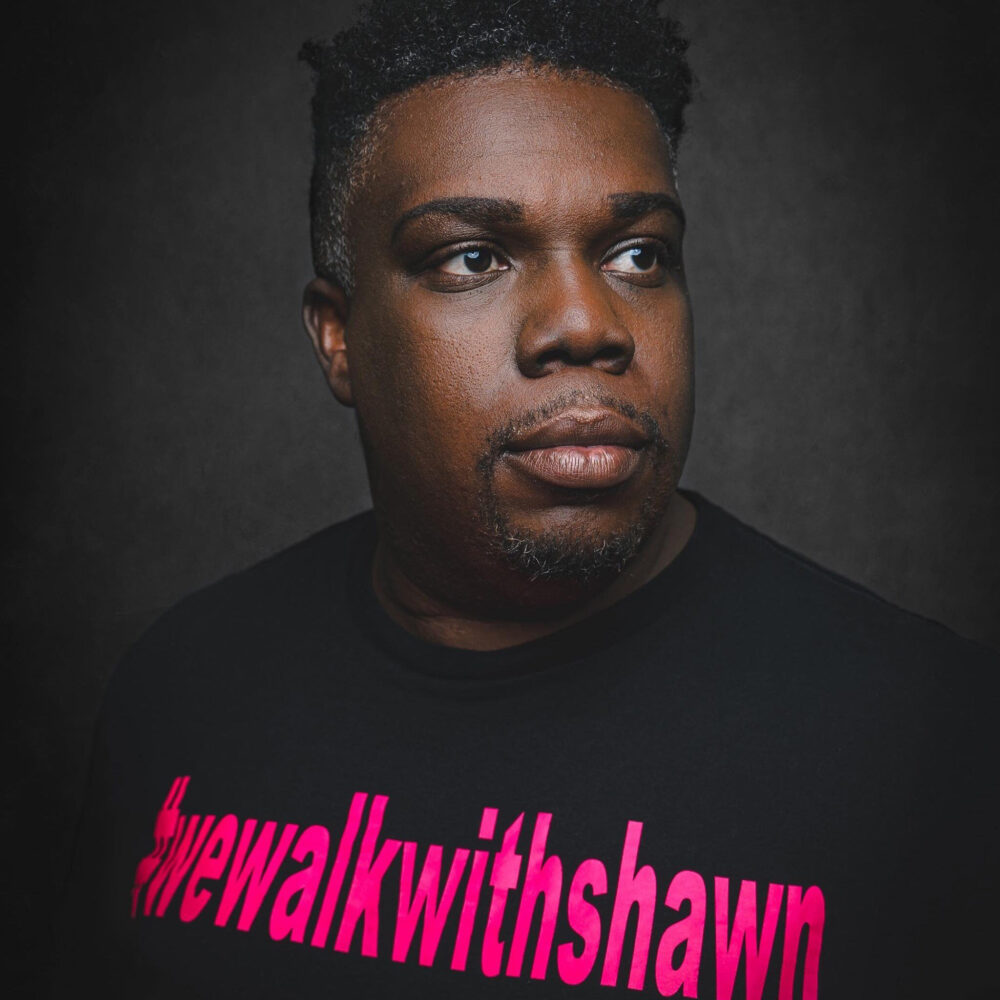
Shawn Dromgoole grew up in Nashville, Tennessee, in the same neighborhood as his mom and his grandma before him. He remembers a time when the neighborhood truly felt like his — cousins and grandparents all within walking distance.
As a kid who felt so free that even neighbors felt like family, he never thought he would be afraid to walk down his own street.
But when Ahmaud Arbury was murdered while jogging near his home in Georgia, something changed for Dromgoole.
And what began as fear has now morphed into a movement: “We Walk With Shawn,” an event that will come to Sag Harbor this weekend, aiming to build community and understanding.
To understand the basis of Dromgoole’s initial fear, it’s helpful to look back at how his neighborhood went from feeling like home to feeling unsafe.
As Dromgoole grew up and people died, the houses around him started selling. Year after year, gentrification took hold. He says that over the course of his childhood, his neighborhood went from being 90 percent Black to 98 percent white.
And it started to feel different. By the time he was around 16, on the streets that had been a safe haven, he said he was perceived as a threat, simply for existing.
“When I was 16, I went to an antiques store in my neighborhood,” he recalled. “I always went to antiques stores with my grandmother. But the lady in the store accused me of stealing and made me call my grandmother to prove that I lived there.”
Demeaning instances like this started to happen more frequently: police following him home, posts on the Next-Door app reporting that there were Black people walking down the street.
“It wasn’t just gentrification,” said Dromgoole. “It was bullying gentrification. My grandmother would get letters in red ink saying, ‘We want you out,’ like it was the 1950s. But we didn’t want to move.”
Then the pandemic hit, and after a few weeks of isolation, Dromgoole decided to invest in a new pair of Nikes to try to walk off what he called his “COVID 30.” It was soon after Ahmaud Arbury’s murder.
“I stepped out my front door, and I had a panic attack,” he said. “I couldn’t do it.”
He called his mom on the phone, and she told him to relax, that it would be better tomorrow. The next day, he tried again, and the same thing happened.
“My mom said, ‘No. You will not be afraid.’ She came over and she walked with me,” he recalled. “We walked past where my aunts used to live, where my great-grandma used to live. We laughed.”
When they got home, both Dromgoole and his mother shared their story on social media. And people started responding.
“Message after message,” he said. “I’ll walk with you. I’ll walk with you.”
The next time he met his mother for a walk, there were 75 people there to walk with them.
“In the middle of COVID, masks on, in the end of May in Nashville,” he said. “It was hot. We didn’t have a plan. But we went walking together.”
The next day, a local television station came to interview him — and the next week, there were 600 to 700 people in his front yard, ready to walk.
Before he knew it, Dromgoole had started a movement: “We Walk With Shawn.” Now, he has done 82 walks in nine states, bringing communities together.
“It became instantly not about me,” he said. “It became about getting to know each other. People started talking to each other, getting to know their neighbors, realizing they lived next door to each other for five years and had never met.”
This Sunday, Dromgoole will be coming to Sag Harbor, so this community can walk with him.
“I don’t think I did anything revolutionary,” he said, “but what is revolutionary is seeing people from all walks of life getting to know their neighbors to talk and walk. Walking with your neighbors breaks down the walls. Get to know someone. Learn about them. Then you can change the world.”
“We Walk With Shawn” will be held on Sunday, June 5, at 8 a.m. at Long Beach on Noyac Road. For more information, visit wewalkwithshawn.org.